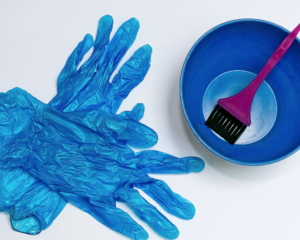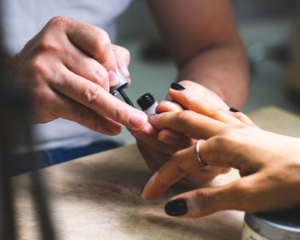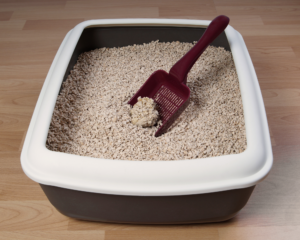Pregnancy – Common Questions (FAQ)
 Pregnancy often brings with it lots of questions. What is safe for you and your baby as you go about your day-to-day activities? Many questions are challenging to find sure answers on, as pregnant people and babies are not often the subject of research studies. Consider all the information available and decide what works for you and your situation.
Pregnancy often brings with it lots of questions. What is safe for you and your baby as you go about your day-to-day activities? Many questions are challenging to find sure answers on, as pregnant people and babies are not often the subject of research studies. Consider all the information available and decide what works for you and your situation.
- Are there foods I should avoid when I am pregnant?
- Should I avoid fish when I am pregnant?
- Can I have caffeine when I am pregnant?
- Are herbal teas safe when I am pregnant?
- Can I have energy drinks when I am pregnant?
- Is vitamin A safe during pregnancy?
- Is it safe to dye my hair or use hair spray or other hair products?
- Can I have my nails done when pregnant?
- Is it safer to use tanning products or lie in the sun when pregnant?
- Should I apply insect repellents?
- Are there any risks to me or my unborn baby with using plastic storage containers?
- Is it harmful to use cleaning products in my home?
- How can I protect myself from pesticides?
- Are there any safety concerns when caring for my pet?
- What forms of travel are considered safe during pregnancy?
- Is it safe to get in a hot tub or do hot yoga?
- Is tooth whitening safe during pregnancy?
- Can I still do my gardening?
- Is it safe to take antacids for heartburn while pregnant?
- Is it safe to get a tattoo when you are pregnant?
Are there foods I should avoid when I am pregnant?
Yes, some types of food can be a higher risk when you are pregnant, such as:
- Hot dogs
- Deli meats such as bologna, roast beef, and turkey breast
- Raw or lightly cooked eggs, such as runny egg yolks
- Foods that have raw eggs, such as some salad dressings and cookie dough
- Raw or undercooked meat, poultry and seafood
- Raw or unpasteurized dairy products
- Soft, semi-soft and blue-veined cheeses such as Brie and Havarti
- Raw sprouts
Check out Safe Food Handling for Pregnant Women for more information on how to reduce your risk of food poisoning.
Should I avoid fish when I am pregnant?
Fish provides important nutrients like protein and omega-3 fatty acids that help your baby grow and develop, but some fish have mercury which can be harmful to your baby. To decrease your exposure to mercury:
- Eat different types of fish such as salmon, rainbow trout, cod and light canned tuna.
- If you eat canned tuna, choose the “light” type (e.g., skipjack, yellowfin and tongol). It has less mercury than “white” (albacore) tuna.
Can I have caffeine when I am pregnant?
When you are pregnant, try to keep your total caffeine intake below 300 mg a day. Foods and beverages that have caffeine include:
- Tea
- Coffee
- Chocolate
- Caffeinated soft drinks
- Energy drinks
- Herbs such as guarana and yerba mate
To find out how much caffeine is in different foods and beverages, check out Health Canada’s Caffeine in Foods page.
Are herbal teas safe when I am pregnant?
Most kinds of herbal teas and kombucha tea are not safe to drink when you are pregnant. The following herbal teas are generally considered safe if limited to 2-3 cups per day:
- Bitter orange/orange peel
- Echinacea
- Peppermint
- Red raspberry leaf
- Rose hip
- Rosemary
While you are pregnant, avoid herbal products in tablet, capsule or supplement form due to potential negative side effects.
Can I have energy drinks when I am pregnant?
Energy drinks are high in caffeine and can also have ingredients that may not be safe for you and your baby during your pregnancy.
Is vitamin A safe during pregnancy?
Although vitamin A is important when you are pregnant, too much can be harmful for your baby. The following are not recommended when you are pregnant:
- Vitamin A supplements
- Fish liver oil supplements
- More than one serving of liver (during your first trimester)
Is it safe to dye my hair or use hair spray or other hair products?
 Exposure to chemicals from hair dyes or hair products is unlikely to cause harm to the unborn baby due to their very limited absorption. Plant based dyes may be safer however there is limited study on whether ammonia based or non-ammonia based products are safer. Read and follow the directions on the product you use. Apply products in well-ventilated spaces
Exposure to chemicals from hair dyes or hair products is unlikely to cause harm to the unborn baby due to their very limited absorption. Plant based dyes may be safer however there is limited study on whether ammonia based or non-ammonia based products are safer. Read and follow the directions on the product you use. Apply products in well-ventilated spaces
Can I have my nails done when pregnant?

Nail polish does have small amounts of chemicals like toluene and formaldehyde. The amounts are unlikely to cause harm to your unborn baby as the absorption rate through your skin is low. Use in well-ventilated places.
Is it safer to use tanning products or lie in the sun when pregnant?
Self-tanning lotions have minimal absorption through the skin. However, they may be irritating to a pregnant woman’s sensitive skin. A pregnant person’s skin, especially the skin of the face, is more sensitive to the effects of sun exposure. Sunlight may increase hyperpigmentation (or pregnancy mask) for some pregnant women.
There is no information on the safety of tanning lotions in pregnancy.
Practice safe sun protection. Avoid sun exposure between 11 a.m. and 4 p.m., wear long clothing and a hat, and regularly apply sunscreen with a sun-protection factor (SPF) of at least 15 to the skin and lips. When using insect repellant with sunscreen, apply the sunscreen first.
Should I apply insect repellents?
Insect repellants are safe and effective for use in pregnancy when applied properly. Read and follow the directions. Apply insect repellant to areas that are not protected by clothes. When using insect repellant with sunscreen, apply the sunscreen first.
Mosquito and tick bites may negatively affect the outcome pregnancy by transmitting diseases such as West Nile virus (WNV) and Zika virus which may be harmful to an unborn baby. For the latest information on travelling to an area with risk of Zika and other travel advisories click here.
Are there any risks to me or my unborn baby with using plastic storage containers?
Plastics having Bisphenol A (BPA) and phthalates are found in many items used daily. Canadians exposure to BPA is generally very low. This is not an overall health risk. However, exposure to chemicals may carry risks for your unborn baby and young child.
The Canadian government has started extra precautions such as packaging and import controls to increase protection for those most vulnerable: newborns and infants.
- Avoid or reduce exposure to items with a recycling symbol #3 because they have phthalates. Examples include soft plastic toys, bags and backpacks with PVC, shower curtains, and flooring.
- Avoid or reduce exposure to items with a recycling symbol #7 because they have BPA. Examples include water bottles, and the lining of food and beverage cans.
- Use glass or food grade storage containers as safe alternatives for plastic food-storage containers.
Attempt to keep the home free from dust to reduce exposure to chemicals from deteriorating plastics.
Is it harmful to use cleaning products in my home?
Some cleaning products may have chemicals that can affect health. To decrease the risks associated with unsafe chemicals in cleaning products:
- Reduce the use of products having ammonia, bleach, or turpentine or use these products with caution.
- Ventilate the area or room when using cleaning products and use the least amount of product as possible.
- Use products that have been labelled eco, non-toxic as safer alternatives.
- If using a dry cleaning service often, switch to one that does not use solvents.
- Use vinegar and water or baking soda as safe cleaning-product alternatives.
Click here for Health Canada’s, Healthy Home Guide
How can I protect myself from pesticides?
Pesticide use is common to rid homes of pests such as insects. They have chemicals that may negatively affect your unborn baby’s growth and development while you are pregnant. Pesticides registered for use in Canada have a Pest Control Product number on the label. Read the label carefully and follow the directions to safely use the product.
To decrease the risks associated with pesticides:
- Prevent pest infestations by:
- Clearing the home of food waste.
- Sealing cracks in homes.
- Fixing leaks that can lead to moisture in the home.
- Avoid entering a pesticide-treated area for the length of time shown on the pesticide label concerning pregnant people.
- Wash fruits and vegetables before eating.
Are there any safety concerns when caring for my pet?

Toxoplasmosis and LCMV (Lymphocytic choriomeningitis) are diseases that may cause birth defects or miscarriage. Exposure to soiled cat litter brings the risk of toxoplasmosis. Exposure to rodent droppings brings the risk of LCMV.
To decrease the potential risks associated with caring for pets:
- Avoid caring for soiled cat litter. If unable to avoid, use gloves when handling soiled cat litter or wash hands thoroughly.
- Reduce the risk of infection by cleaning cat litter boxes daily.
- Avoid contact with wild or pet rodents, such as pet mice and guinea pigs.
- Seek medical attention if bitten by an animal.
What forms of travel are considered safe during pregnancy?
Many forms of travel are safe during pregnancy. Pregnant people are encouraged to speak with their health care provider about engaging activities like boating, snowmobiling and using ATV’s.
Cars
When travelling in a car while pregnant:
- Wear a three-point seatbelt (at hips and shoulder) positioned correctly without slack, at every stage of pregnancy.
- Position the lap belt at the pelvis under the belly.
- Position the shoulder belt at the collar bone, not on the neck.
Studies show that your airbag and your seatbelt continue to protect you while pregnant. Transport Canada recommends that all people who are over the age of 13, short, tall, or pregnant are safer travelling with an airbag than without one.
Pregnant people should:
- Maintain at least 25 cm between their sternum and the centre of the steering wheel (or the dashboard if the pregnant person is not driving).
- Move the seat back to maximize the distance from the steering wheel as your abdomen grows.
Planes
Airlines usually allow pregnant people to travel up to one month before their due date. Specific airlines may have restrictions. Check with the airline prior to making travel arrangements.
Airport metal detectors and body scanners do not pose a risk to in pregnancy nor to the unborn baby.
To minimize discomfort and decrease your risk of blood clotting during air travel:
- Consult your health care provider prior to making travel plans.
- Stand up and move around periodically
- Stretch your legs while seated.
- Select an aisle seat if possible.
- Wear comfortable clothing and shoes.
- Consult a health care provider about the need to wear compression stockings.
- Check with the airline about the rules for pregnant passengers.
When planning international travel:
- Check with your health care provider prior to making travel plans to an international destination.
- Visit a travel health clinic if recommended by your health care provider.
- Check with your health care provider about vaccination. Avoid live vaccines (e.g., measles, mumps and rubella) in pregnancy unless the benefits outweigh the risks. Inactivated vaccines are considered safe (e.g., hepatitis B) in pregnancy.
- If possible, avoid travel to areas where malaria and Zika virus transmission occurs.
- Obtain travel/health insurance right for travel plans and pregnancy stage.
- Carry a letter stating the due date for immigration or airline purposes.
Is it safe to get in a hot tub or do hot yoga?

A pregnant person’s increased body temperature raises the risk of heat stroke and hyperthermia. Hyperthermia in pregnancy increases the risk of neural tube defects for the unborn baby. The neural tube forms at 4-6 weeks of pregnancy. The neural tube later becomes the spinal cord, spine brain and skull.
During pregnancy avoid:
- Practicing hot yoga
- Sitting in a hot tub
- Exercising in very hot weather or humid environments
When exercising indoors use a cooling fan to prevent overheating.
Is tooth whitening safe during pregnancy?
This is unknown. If possible, delay tooth whitening until after your pregnancy.
Let your dental professional know you are pregnant. This will help them plan your care.
Yes. You can protect yourself from bacteria and parasites in the soil that may be harmful to your unborn baby by:
- Wearing gloves in the garden.
- Watering your garden before you disturb the soil to lessen the chance of inhaling soil particles.
- Washing your hands thoroughly when you are done. Wash right up to your elbows.
- Avoid touching your eyes, nose, mouth, or face until you wash your hands
- Wash fruits and vegetables before eating.
Pesticides present a risk to your unborn baby. Consider organic options for your garden.
Is it safe to take antacids for heartburn while pregnant?
Not all antacids are safe during pregnancy. It is recommended to check with your health-care provider before taking an over-the-counter medication while pregnant. If you decide to take antacids, remember they provide immediate but brief symptom relief. Heartburn is common during pregnancy as hormone changes cause the digestive system to slow. It may help to try:
- Eating smaller meals throughout the day,
- Waiting three hours before lying down,
- Keeping your head and shoulders raised when lying down,
- Avoiding greasy, fried and spicy foods,
- Avoiding caffeine, alcohol and smoking.
Is it safe to get a tattoo when you are pregnant?
Pregnancy is not an ideal time for a tattoo. However, if you did unknowingly tattoo while pregnant, please know there are no untoward events reported. If planning a tattoo while pregnant, consider that there is little known about the range of pigments used in tattooing on the foetus as well as the risk of infection at the site. Use of unsterilized equipment is associated with the risk of serious infections, for example Hepatitis B.
Services related to this information:
- Contact your Public Health Nurse.
- 811 HealthLine (Newfoundland & Labrador) – Call 811 or 1-888-709-2929 / TTY 1-888-709-3555
